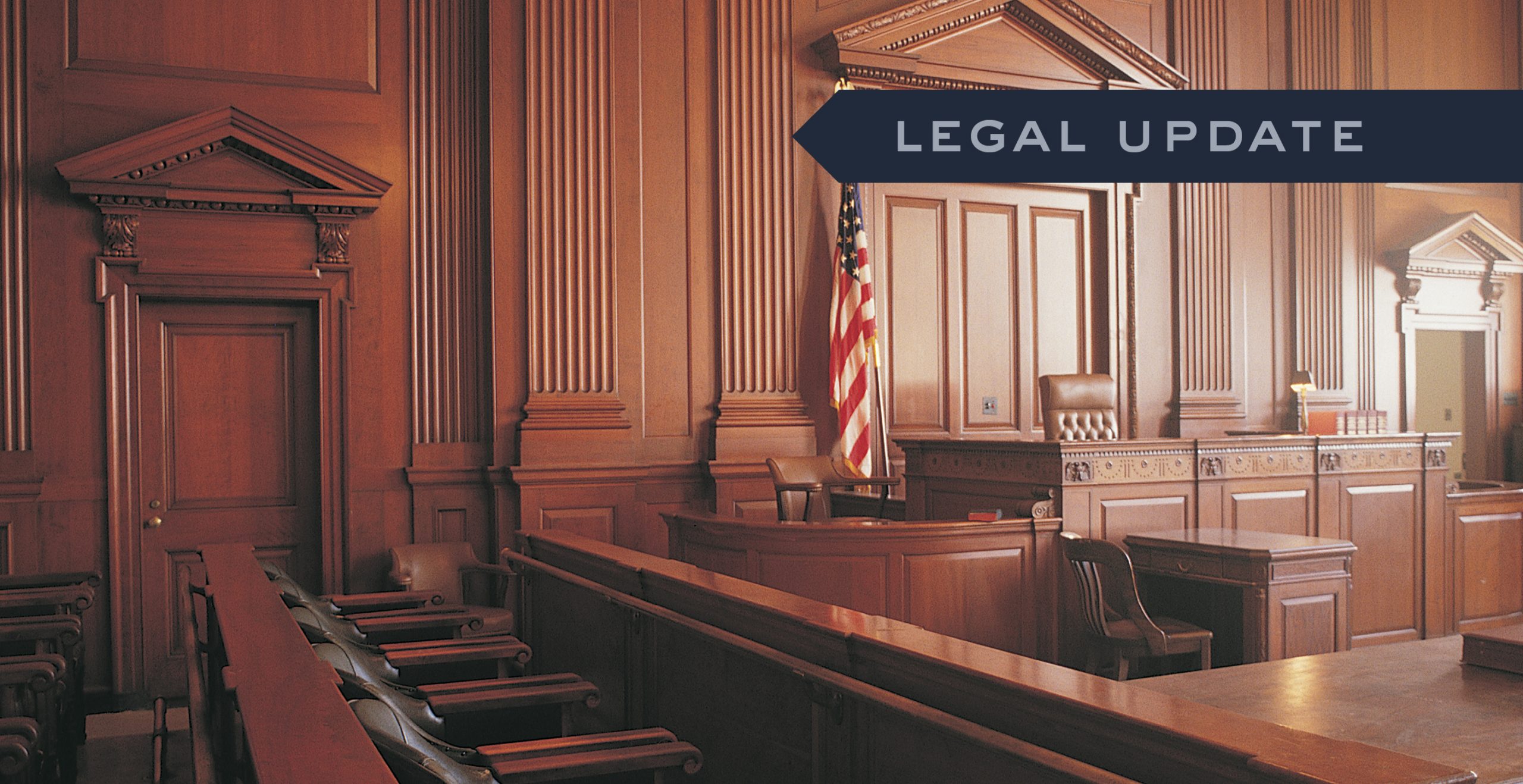COVID-19 caused courts to put most civil jury trials on hold. In Minnesota, civil jury trials remain suspended through June 13, 2021. Some courts have found creative ways to conduct trials during this time. Larson • King attorneys Angela Brandt and Dan Adams participated in a four-week product liability trial in Seattle, and attorneys Mark A. Solheim and Kevin T. McCarthy participated in a two-week medical malpractice jury trial in Hennepin County, Minnesota. Juries in both cases returned verdicts in favor of Larson • King’s clients. These cases required the involved attorneys to adopt new techniques for effectively and efficiently presenting evidence. Presenting testimony of certain witnesses by Zoom and offering exhibits and other demonstrative evidence through electronic platforms streamlined the presentation of evidence and lowered costs without sacrificing the effective presentation of evidence to the jury.
Ms. Brandt and Mr. Adams’ trial took place in a convention center ballroom that was utilized as a courtroom.
This allowed the parties, witnesses, court staff, and jury to social distance. Voir dire was conducted via Zoom. Potential jurors were given a designated time to participate from their own space, rather than being required to sit in the courthouse for an entire day. The court required the parties to upload all exhibits to an electronic share file and when an exhibit was admitted, it was electronically moved into the file that comprised the official trial record. The defense team made a decision to have all of its witnesses appear live. This gave dimension to the testimony and allowed the witnesses to teach the jury through use of an old-fashioned flip chart. The team was deliberate about using some demonstrative exhibits that were not electronic because so much of the trial, including nearly all of the other side’s witnesses who testified via Zoom, was centered around the large screen in the courtroom.
The parties in Mr. Solheim and Mr. McCarthy’s trial utilized technological resources to streamline the trial and adapt to the COVID-19 precautions in place.
Attorneys were required to wear masks and could not use physical exhibits or demonstrative materials. Programs like Trial Director to share exhibits, and the use of laptops or overhead projectors to employ demonstrative and illustrative materials, allowed the parties to effectively and efficiently present evidence and should be utilized by trial attorneys moving forward. Attorneys should have multiple conversations in advance of trial to determine what exhibits and demonstrative materials are necessary to support their claims or defenses.
With ongoing concerns and travel restrictions from the COVID-19 pandemic, both trials utilized Zoom to allow witnesses to testify remotely.
The legal community has recognized the efficacy of videoconferencing technology for depositions and hearings, and this more economical practice is likely to continue after pandemic restrictions are lifted. Attorneys may need to be prepared to offer or cross-examine certain trial witnesses by videoconferencing technology in post-pandemic trials. The use of remote witness testimony was used differently in the two trials. This type of testimony proved to an effective alternative to live testimony during Mr. Solheim and Mr. McCarthy’s trial. Expert witnesses were still able to share illustratives using the share screen function, and jurors were engaged during the testimony because many if not all of them have used videoconferencing technology during the pandemic. In Ms. Brandt and Mr. Adams’ trial, the team used the presence of live witnesses to create a contrast to the all-remote witness presentation put on by the opposing party. Going forward, both options are likely to remain available, so parties will want to make strategic decisions about which witnesses to call live rather than by remote technology.
“COVID-19 forced us to rethink the traditional presentation of evidence through live witnesses and hard copy documents and instead use the available technology to adapt to restrictions in place. We learned that witness testimony and other evidence can be presented just as effectively and at a lower cost through the use of technology,” said McCarthy.
Contact attorneys Angela Brandt, Dan Adams, Mark Solheim, or Kevin McCarthy at 651-312-6500 if you have any questions about the information above.
